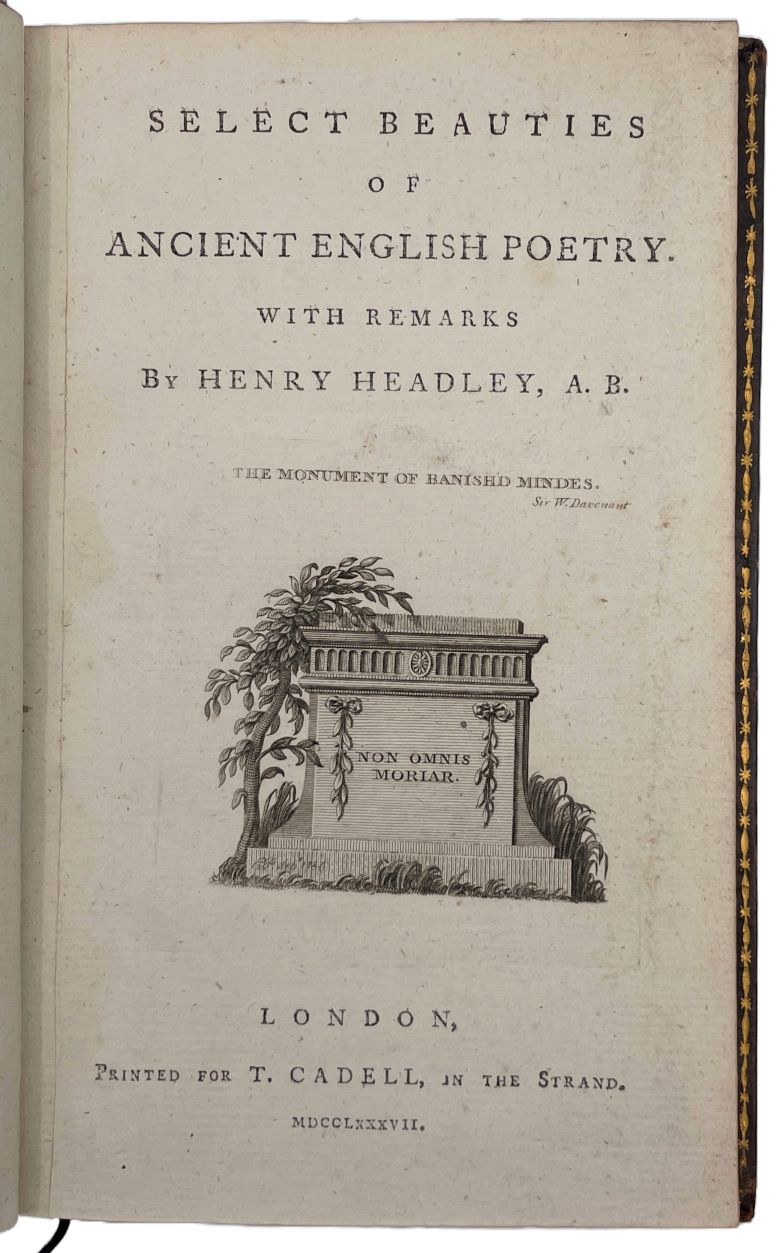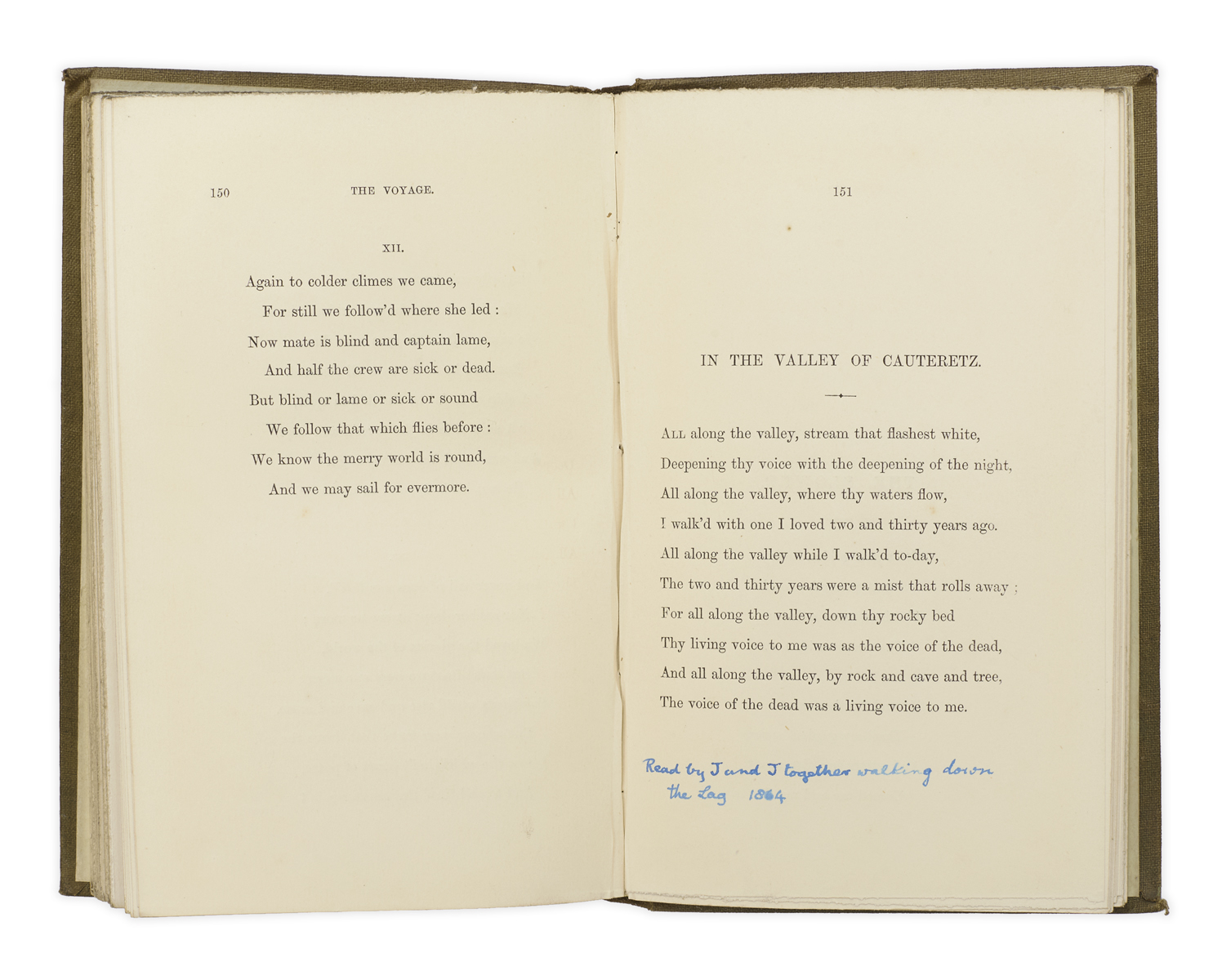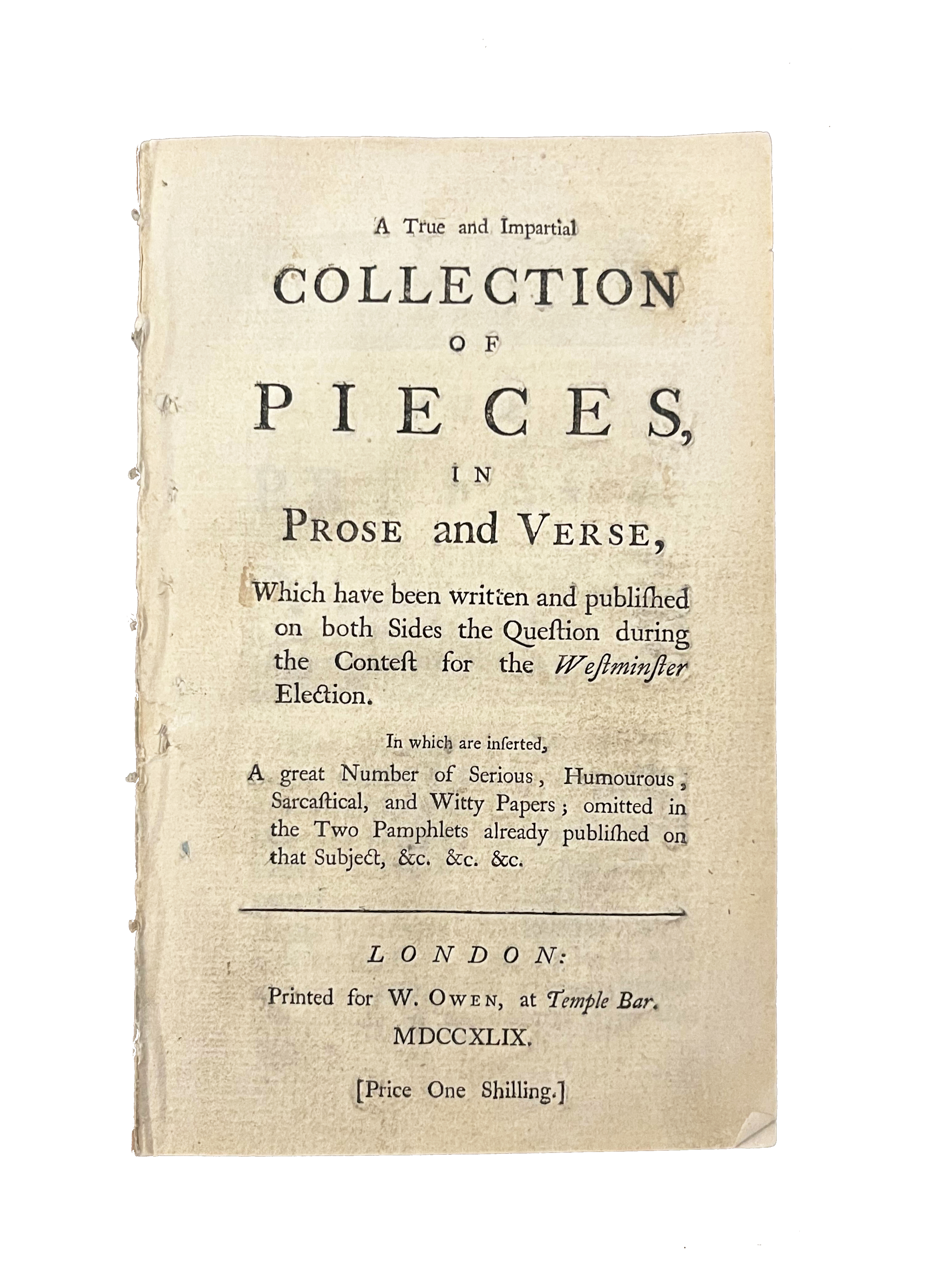
ELIZABETHAN POETRY
HEADLEY, Henry, editor.
Select Beauties of ancient English Poetry …
London, Printed for T. Cadell … 1787.
2 vols., 8vo., with half-titles, list of subscribers, and errata leaf; engraved title vignettes; apart from a tear to top margin of a6-7 in volume I, a fine copy in contemporary speckled calf, gilt rolls to covers, spines gilt, slight worming to lower joint of vol. II.
First edition. This important miscellany – which would have been continued had not the young editor died in 1788 at the age of twenty-three – explores some of the byways of Elizabethan and early Stuart poetry. After a long introductory appreciation with biographical sketches of the poets, the verse is presented under headings such as Descriptive, Moral, Elegiac. The section of Sonnets – mainly by Daniel, Drayton, and Drummond – may have influenced Headley’s Oxford friend, William Bowles, a subscriber, who two years later was to publish his first collection of Romantic sonnets.

